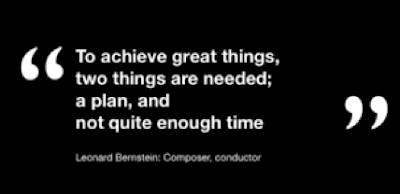I have no doubt that many of you have been following the
‘maths’ stories inside the Herald over the last few weeks. Peter Hughes raises
some interesting issues to contemplate. If you are interested in exploring some
of these ideas an interesting read is ‘Catching Up or Leading the way: American
Education in the Age of Globalisation’ by Professor Yong Zhao. This is a most
interesting read. Yong Zhao was born and raised in China and is now a
distinguished professor in America. He has a focus on the future and how we
might best prepare children to be global citizens…..
While
poor in some areas, NZ kids' results rank highly in international report
evaluating real-world relevance.
 |
|
Peter
Hughes is a lecturer in maths education at the University of Auckland. He is co-author
of 51 maths textbooks published in New Zealand, the US, Australia, and the UK.
Recent debates about learning the basic
facts and the ability of our Year 9s in basic subtraction was kicked off in the
media by New Zealand's results in Timss (Trends in Mathematics and Science
Study) that showed we were doing poorly in maths.
In fact very different interpretations
are possible if data from Pisa (Programme for International Student Assessment)
2009 is used.
The 2010/11 government report on Pirls
(Progress in International Reading Literacy Study) and Timss show that in
reading our Year 5s come 23rd out of 45 countries. In science Timss places our
Year 9s at 31st out of 49. For mathematics the media reported that Timss places
our Year 9 students 34th out of 53. In fact this is the Year 5 result. The
correct figure for Year 9 is 16th out of 42. This misreporting has had an
important negative effect on the debate about mathematics learning. It has
opened the door to a flood of criticism in the press and talkback radio about
learning the tables and doing standard pen and paper calculations. Yet the
Timss report for Year 9 does not mention these things: "New Zealand's Year
9 tended to be very strong in data and chance (ie statistics and probability)
and to a lesser extent number compared to their overall performance.
|
 |
|
Practice, practice, practice is an invitation to extinguish creative and
lateral thinking. Photo / Getty Images
|
They were very weak in algebra and to a
lesser extent geometry." It points to alarming weaknesses in algebra and
geometry; we urgently need to work on these areas rather than number.
All these results are very depressing.
Yet are they correct? Pisa suggests they may not be: according to Pisa our
15-year-olds are near the top of the world in all three subjects. Out of 65
countries, New Zealand ranks seventh in reading, 13th in maths, and seventh in
science.
The countries that are ahead of us in
Pisa when reading, maths, and science position are combined are China
(Shanghai) first, Hong Kong second, Finland and Singapore third equal, Korea
fifth, Japan sixth, and Canada seventh. And we come in at eighth in the world.
This data will be used later. So how can Timss and Pisa produce such wildly
contradictory results for New Zealand?
The student assessments are constructed
from quite different perspectives. In essence, Timss starts with the curriculum
and assesses how well the students are achieving, whereas Pisa starts from the
opposite end and asks how well students can utilise their mathematics in the
real world. While it would be unfair to say which of the two we should prefer -
and there is a lot of research on this that highlights the major difficulties
in making such judgments - we might well choose Pisa because of its links to
real world problems.
George Lim in his opinion piece on
March 20 explains why children in the highly ranked Asian countries do so well
in school maths - quite simply they do lots of practice. Does this suggest a
way forward for New Zealand in the teaching of maths? Evidence from the United
States is useful in answering this question.
In both Timss and Pisa the US always
rates poorly, and every time a new report comes along their politicians react
hysterically. Voucher schemes, merit pay for teachers, and charter schools are
among the tired old non-solutions they resurrect to solve the problem. Yet, as
an American colleague has repeatedly pointed out, if the US education system is
so bad, how do they dominate the world in such things as university rankings
and number of Nobel Prizes awarded?
Comparing the US with the five Asian
countries above on these two criteria we get some interesting results. Of the
top 40 universities in the world 25 are in America, China has none, Japan one,
Hong Kong one, Korea none, and Singapore one. Looking at Nobel Prize winners
since 2000, the US has 64 (or 84 if the 21 born outside the US are counted),
China has four, Japan 11, Hong Kong one, Korea one, and Singapore none. Readers
can draw their own conclusions from this data, but I for one cannot infer that
New Zealand should imitate the Asian countries' relentless emphasis on practice
in learning maths. Until there is any evidence to the contrary the best
assumption is that "practice, practice, practice", as George Lim puts
it, is an invitation to extinguish creative and lateral thinking in maths,
things which our best students currently are rather good at.























